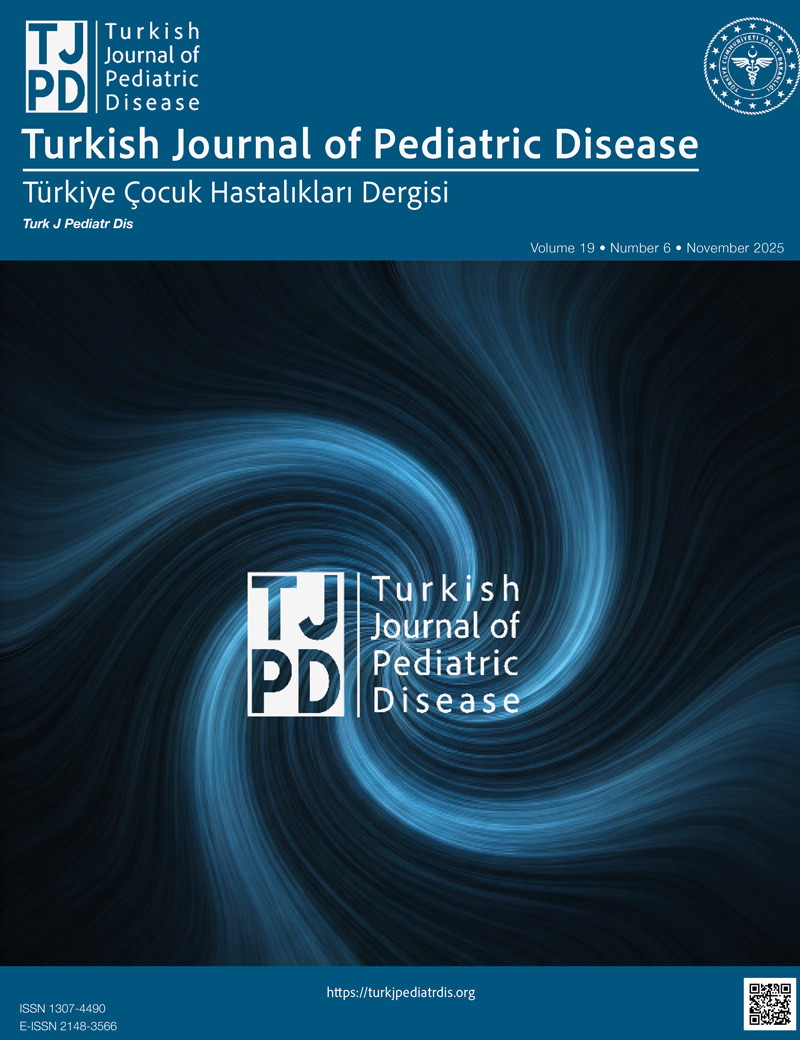Abstract
Objective: Preterm infants admitted to neonatal intensive care units (NICUs) are at an increased risk of requiring basic life support (BLS). This study aimed to evaluate the impact of BLS training on the knowledge and anxiety levels of mothers of preterm infants.
Material and Methods: This prospective descriptive study included mothers of preterm infants born at less than 37 weeks of gestation who were either discharged from the NICU or being treated in the mother-infant adaptation unit. Participants were provided with BLS training using visual materials. A questionnaire assessing knowledge levels and the State-Trait Anxiety Inventory (STAI Form TX-1 and TX-2) were administered before and after the training. Pre- and post-training questionnaire responses and anxiety scores were analyzed.
Results: A total of 100 mothers participated in the study. Post-training knowledge levels regarding BLS significantly improved (p<0.001). State and trait anxiety scores significantly decreased after the training (p<0.001). Mothers with a university education had higher pre-training knowledge scores compared to those with primary or secondary education (p<0.001); however, post-training knowledge levels were similar across all educational groups (p = 0.600).
Conclusion: BLS training increased knowledge levels and reduced anxiety among mothers of preterm infants. Therefore, developing and disseminating appropriate BLS training programs for parents may play a crucial role in improving public health. Moreover, reducing parental anxiety through such training could contribute to enhancing the quality of neonatal care.
Keywords: Preterm, mother, parent, basic life support, education, anxiety
References
- Topjian AA, Raymond TT, Atkins D, Chan M, Duff JP, Joyner BL, et al. Part 4: Pediatric basic and advanced life support 2020 American Heart Association guidelines for cardiopulmonary resuscitation and emergency cardiovascular care. Pediatrics. 2021; 147 (Supplement 1): e2020038505D. https://doi.org/10.1542/peds.2020-038505D
- Schroeder DC, Semeraro F, Greif R, Bray J, Morley P, Parr M, et al. Kids Save Lives: Basic life support education for schoolchildren: A narrative review and scientific statement from the international liaison committee on resuscitation. Circulation. 2023 ;147(24):1854-68 https://doi.org/10.1161/CIR.0000000000001128
- Harrison MS, Goldenberg RL. Global burden of prematurity. Semin Fetal Neonatal Med. 2016 ;21(2):74-9. https://doi.org/10.1016/j.siny.2015.12.007
- Torchin H, Ancel PY. [Epidemiology and risk factors of preterm birth]. J gynecol obstet biol reprod (Paris). 2016 ;45(10):1213-30. https://doi.org/10.1016/j.jgyn.2016.09.013
- Applegate JA, Islam MS, Khanam R, Roy AD, Chowdhury NH, Ahmed S, et al. Young infant mortality associated with preterm and small-for-gestational-age births in rural Bangladesh: A prospective cohort study. J Pediatr. 2024;269:114001 https://doi.org/10.1016/j.jpeds.2024.114001
- Bell EF, Hintz SR, Hansen NI, Bann CM, Wyckoff MH, DeMauro SB, et al. Mortality, In-hospital morbidity, care practices, and 2-year outcomes for extremely preterm infants in the US, 2013-2018. JAMA. 2022 ;327(3):248-63. https://doi.org/10.1097/01.aoa.0000891644.03402.e8
- Acunas B, Bas AY, Uslu S. Turkish Neonatology Society High-Risk Infant Follow-up Guide: 2018 Update. https://neonatology.org.tr/uploads/content/tanı-tedavi/17_min.pdf.
- Teti DM, O’Connell MA, Reiner CD. Parenting Sensitivity, Parental Depression and child health: The mediational role of parental self-efficacy. Early dev parent. 1996 ;5(4):237-50. https://doi.org/10.1002/(SICI)1099-0917(199612)5:4<237::AID-EDP136>3.0.CO;2-5
- Blencowe H, Cousens S, Oestergaard MZ, Chou D, Moller AB, Narwal R, et al. National, regional, and worldwide estimates of preterm birth rates in the year 2010 with time trends since 1990 for selected countries: a systematic analysis and implications. Lancet. 2012;379(9832):2162-72. https://doi.org/10.1016/S0140-6736(12)60820-4
- Öner N and Le Compte A. The validity and reliability of the Turkish version of the State-Trait Anxiety Inventory (STAI). Psychological Bulletin, 1985;40(3):122-33.
- Shen CC, Tsai LY, Yeh SH, Chen TH. Accuracy and related factors of emergency management in hospitalized scald burn patients and their helpers. New Taipei Journal of Nursing 2007;9:35- 48.
- Böttiger BW, Lockey A, Georgiou M, Greif R, Monsieurs KG, Mpotos N, et al. Kids Save Lives: ERC position statement on schoolteachers’ education and qualification in resuscitation. Resuscitation. 2020;151:87-90. https://doi.org/10.1016/j.resuscitation.2020.04.021
- Greif R, Lockey A, Breckwoldt J, Carmona F, Conaghan P, Kuzovlev A, et al. European resuscitation council guidelines 2021: Education for resuscitation. Resuscitation. 2021 ;161:388-407. https://doi.org/10.1016/j.resuscitation.2021.02.016
- Korkut S, Tayman C, Yurdagül N, Özel Ş, Beşer Özmen E, Ceran B, et al. Evaluation of basic life support training given to the parents of infants discharged from the neonatal intensive care unit. JGON. 2019;16, 37-40.
- Smith ME. The impact of infant CPR training on maternal confidence and anxiety. BMC Pregnancy and Childbirth. 2018;18(1):78.
- Kinsella MT, Monk C. Impact of maternal stress, depression and anxiety on fetal neurobehavioral development. Clin Obstet Gynecol. 2009;52(3):425-40. https://doi.org/10.1097/GRF.0b013e3181b52df1
- Kroeger M, Chandler R. Managing parental anxiety: Strategies and techniques. Nursing Clinics of North America, 2017;52(2):219-30.
- Dennis CL, Falah-Hassani K, Shiri R. Prevalence of antenatal and postnatal anxiety: Systematic review and meta-analysis. Br J Psychiatry. 2017;210(5):315-23. https://doi.org/10.1192/bjp.bp.116.187179
- Trumello C, Candelori C, Cofini M, Cimino S, Cerniglia L, Paciello M, et al. Mothers’ depression, anxiety, and mental representations after preterm birth: A study during the infant’s hospitalization in a neonatal intensive care unit. Front Public Health. 2018;6:359. https://doi.org/10.3389/fpubh.2018.00359
- Pawluski JL, Lonstein JS, Fleming AS. The neurobiology of postpartum anxiety and depression. Trends Neurosci. 2017 ;40(2):106-20. https://doi.org/10.1016/j.tins.2016.11.009
- Van der Zee-van den Berg AI, Boere-Boonekamp MM, Groothuis-Oudshoorn CGM, Reijneveld SA. Postpartum depression and anxiety: a community-based study on risk factors before, during and after pregnancy. J Affect Disord. 2021;286:158-65. https://doi.org/10.1016/j.jad.2021.02.062
Copyright and license
Copyright © 2025 The Author(s). This is an open access article distributed under the Creative Commons Attribution License (CC BY), which permits unrestricted use, distribution, and reproduction in any medium or format, provided the original work is properly cited.






